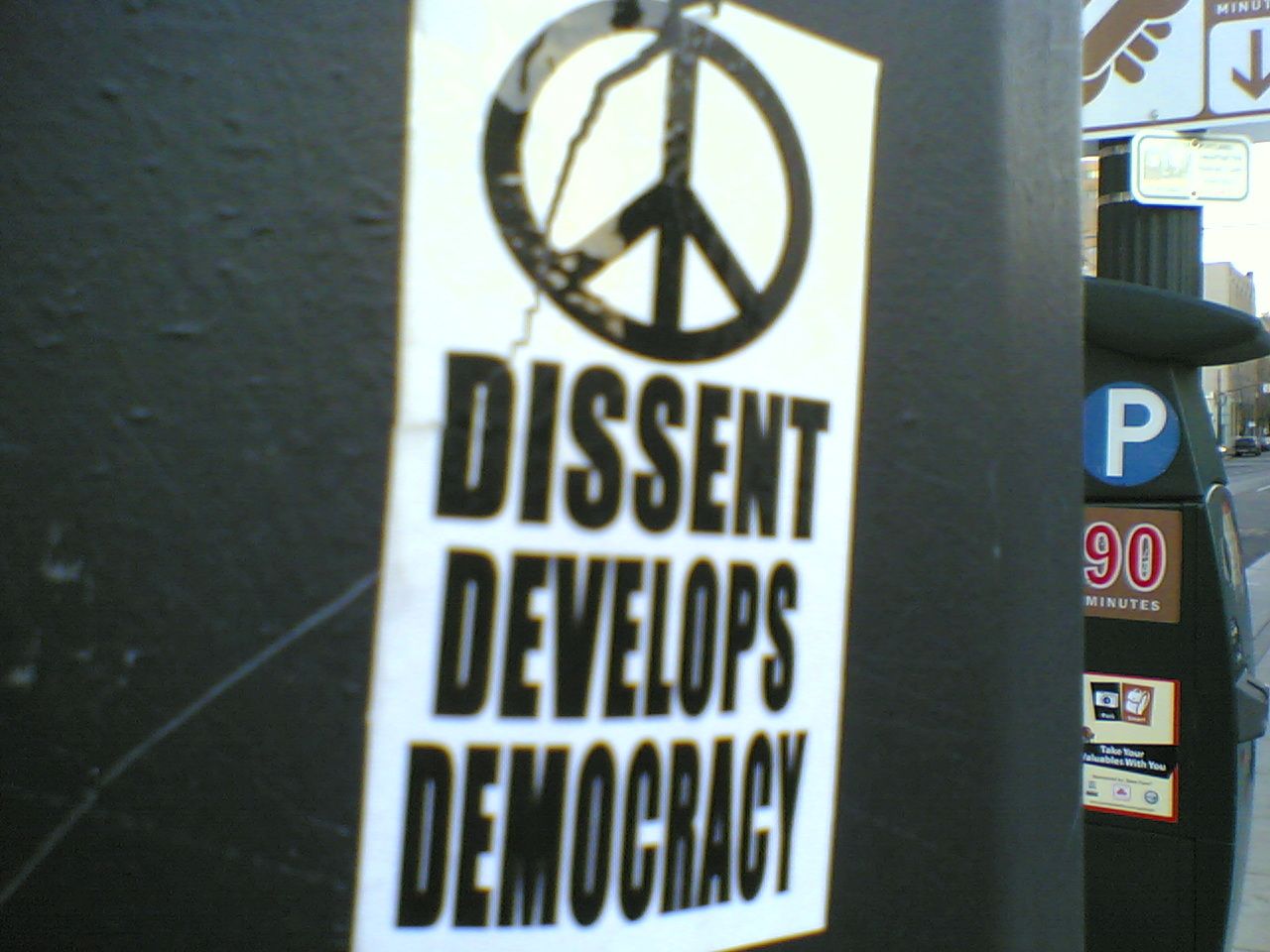Editor’s Note: I’m not a Catholic, but we need good people to lead. Whether the Dalai Lama, Fred Rogers, Dolly Parton, or Jimmy Carter, the world typically rejoices when a good person rises to a worthy position. Pope Leo appears to be one of us at the right time.
Most of my life has been like that of many others, with one foot in the social construct of groups, whether a church, club, team, or organization, and another in doing my own thing, pushing back against that cultural force that rewards “go along to get along.”
This is a feature of modern civilization, where structure provides stability and no structure sparks creativity. When either is out of balance, problems ensue.
Civil disobedience is somewhere in between and is deep in the DNA of the United States. It is a bit paradoxical as it sometimes requires the breaking of the structure to build it back properly, typically with some creativity, for example, to ensure laws are in place not to be punitive but to seek justice.
The goal is to do this without resorting to violence.
Early colonists went the civil disobedience route when the law seemed heavy-handed and out of touch. Men like Ben Franklin were loath to leave the existing system until they felt there was no other option. The Boston Tea Party exemplified how targeted lawbreaking can spur change. Colonists destroyed British tea to protest taxation without representation. They weren’t working to break the structure just yet, but to bend it more toward the will of the people. They chose goods to destroy, not violence against people. When the monarchy tried to strong-arm the resistance instead of listen, well, we know how that worked out.
The Fugitive Slave Act (1850) was another law put into the structure that was widely scorned for its lack of representation. It mandated returning escaped slaves but prompted widespread defiance from abolitionists who operated the Underground Railroad-a network of illegal safehouses. Similarly, the 1960s anti-Vietnam War movement saw 34,000 draft card burnings after congressional and judicial channels, the structure, ignored public opposition for what was deemed an unjust war.
Figures like Henry David Thoreau and Mahatma Gandhi advocated an approach similar to these actions; following most laws but protesting immoral ones.
This raises questions for Americans today. How do citizens know when to act, and how to distinguish between principled rebellion and purposeful destruction? When does dissent become a moral obligation rather than a punishable offense?
The Trump administration has begun with unprecedented attacks on lawyers, judges, freedom from religion, freedom of speech, and the right to due process. It has practiced an arbitrary use of power that can only be paraphrased as rewarding friends and punishing enemies. While it has been marketed as an effort to change the structure, it is much more an effort to break it.
Understanding motivations is essential to understanding what constitutes crime. Crime is not a black and white issue, which is why we have such large codes with wide degrees of punishment. Unlike criminal acts driven by self-interest, civil disobedience springs from moral conviction. For example, when Rosa Parks refused to surrender her bus seat in 1955, she acted not for personal gain but to challenge systemic racism. Similarly, Thoreau’s refusal to pay taxes in 1846 protested slavery and imperial war, not the concept of taxation itself.
These are big differences.
To better understand this, consider three pillars that distinguish civil disobedience from ordinary crime.

Gif by IntoAction on Giphy
Nonviolence: Violence against humans is to be avoided as it obscures the moral message. Gandhi’s Salt March (1930), where thousands peacefully defied British salt monopolies (and some died in the process), drew global sympathy. The march in Selma during the 1960s civil rights movement brought violence, but not by the marchers. The recent Tesla protests against Elon Musk’s ties to the Trump administration prioritized property damage over harm to individuals.
Transparency: Protesters act openly. It’s not hiding bombs in churches or sending them in the mail. They accept legal consequences to highlight injustice. Martin Luther King Jr. famously wrote that those practicing civil disobedience must be prepared to “accept the penalty” to show their overall respect for the rule of law. If it targets other humans, it’s not civil.

RICHARD PIERRIN, AFP via Getty Images
Targeted Dissent: It is not simply to break the law. It is to bring focus to specific injustices rather than rejecting governance entirely. For example, the 50501 Movement’s 2025 nationwide protests are opposing Trump’s expansion of executive power, not democracy itself. The structure is sound. The dissent is to protect it.
These three guides work.
Violence that harms humans tends to breed retaliation and erode the public support necessary for change. During the 1960s civil rights movement, nonviolent sit-ins and marches exposed decades of police brutality to protect segregation. Consider that in the context of the more recent 2021 Capitol events. It was not a movement but a riot-a violent rejection of electoral results- based upon a lie to protect the status quo. The target was anyone in the way, and most rioters ran and hid until the long arm of the law found them.
It only deepened political divisions.
Civil disobedience is not a first resort but a last safeguard. It arises when petitions, lawsuits, and elections prove inadequate. Under Trump, where attacks on the press, judiciary, and marginalized communities have escalated, the line between loyalty to country and complicity in injustice blurs. Normal channels are faltering.
From Thoreau’s tax refusal to the Parkland students’ March for Our Lives, sustained civil disobedience keeps democracy from slipping away. When laws protect power rather than people, breaking them becomes an act of patriotism. The challenge lies in acting not out of anger, but with the clarity that King described: “openly, lovingly… to arouse the conscience of the community.”
In an era of democratic fragility, that waking of the conscience may be our final line of defense.
Go out and do it.
Special note: Read this story on a Russian dissident who joined the fight for Ukraine as part of the Freedom of Russia Legion. His code sign was Gandhi.
Trusted by 1,000,000+ readers across the world and political spectrum
Ground News lets you compare how left, center, and right-leaning outlets cover the same story, so you can easily analyze reporting and gain a well-rounded perspective on the issues that matter to you.
Built for the age of the algorithm, its Blindspot Feed shows stories underreported by the left or right, helping you break out of your bubble and challenge your worldview. Because the news you don’t see can shape your perception just as much as what you do see.
Find out why the Nobel Peace Center endorsed Ground News as “an excellent way to stay informed, avoid echo chambers, and expand your worldview.”
NO BS HITS
This is what a lack of education and culture causes. And there should be no platform that supports it or profits from it. It’s free speech, but it’s ignorant.
Speaking of dissent, what’s it like to live under occupation?
Electricity from rain? I don’t understand it, but I recognize the value of science to get us where we need to go. This is why you don’t defund science and education.
Was Vietnam worth it? Did we learn anything?
If we could accept that humankind has been here for thousands of years and that almost all of that time has been a product of conflict, we may see that the natural form of evolution is to get beyond the animalistic need to conquer and subdue. We have tried to do this, to channel aggression, through sport, whether boxing, football, or the Olympics.
Humankind has had a very short relationship with the discovery of science, and even less time with modern technology, though we are quickly entering the realm of being able to accomplish whatever we dream.
To get there, we will have to throw off this old mindset of treating humans as fodder for others. That might makes right, or even the appearance of such. While we must feel secure to evolve, a security mindset will stunt the creativity needed to grow. There is very little distance in time between this evidence of feeding humans to lions to our times today. Maybe a second compared to the age of the Earth.
We can leap into a new threshold of discovery if we can work harder to embrace what makes humans unique, and not just what makes them dangerous.
This does not bode well for the working class. The tone of this piece is a bit belligerent, and there are several things skimmed over. One wrong is that these companies have profited immensely, even with the rise of AI. These perks didn’t seem to impede profit. In a healthy economic system, employees would be celebrated for such outcomes, not questioned over perks and not abandoned at the first opportunity. That’s not the invisible hand of the marketplace, but learned principles that teach it is ok to discount human needs.
The correct way to view this is to ask why most workers have to fight to get the necessities of modern work, at the very minimum, affordable healthcare. The culture that considers workers as expendable will not last. It will implode from within. We are seeing a bit of that now, carefully manipulated by the wrong party.
We can do better. When we choose not to as a business practice, it is the crime that controls all others.
Greed.
Rick Atkinson is a great writer who turned his love of history into his lifelong pursuit. This is a good and timely piece introducing a new book he has coming out. So much of what we gain from a regular education misses some details, and writers like Atkinson go back and pick them up. For this one, the focus is on the Revolutionary War. Many of the army were near destitute when joining. Some sent their slaves to fight for them. For loyalists, they lost their wealth and livelihood. Sometimes their lives.
Just like the Civil War, the Revolutionary War broke families apart. Atkinson says the principles that were first brought forward are the ones we must return to:
Life, liberty, and the pursuit of happiness.
When we move away from those, we get into trouble. We survived tough times before and will do so again. Let’s hope it doesn’t get to this level of internal conflict ever again. We’ve never had an administration that actively works against those principles. Before finding fault in fellow citizens, find fault in those who actively encourage it.

Thank you for reading. Please like, comment, and share. That’s the best way I find new readers. I also want to mention the moms out there. We would be nowhere without them. Have a great mother’s day. (Hi, mom). As you go through your week, make it matter. Do something meaningful, and keep making good trouble.









